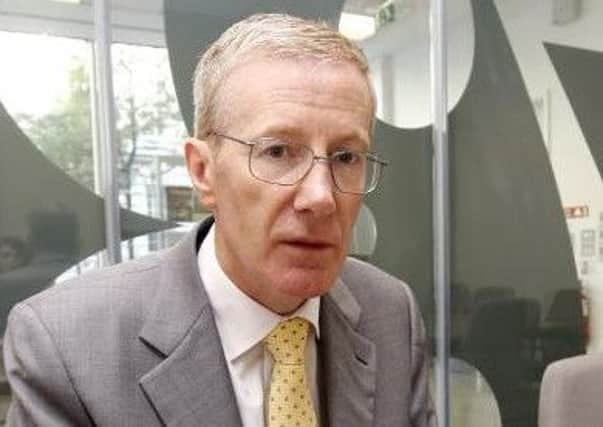Unanswered questions about Bloody Sunday


Whatever the campaigners may claim; whatever prejudiced and partisan commentators may attempt to convey, the truth about events on that day will probably never be known.
I made this comment when Lord Saville released his report and it bears repeating now after the Prosecution Service has decided to prosecute one soldier in respect of events on that day.
Advertisement
Hide AdAdvertisement
Hide AdTo bring some clarity and realism to the debate, there are a number of indisputable facts that must be taken account of, even if it brings some uncomfortable truths to the fore.
The security situation in Northern Ireland in 1971 and early 1972 was rapidly deteriorating.
Internment had been introduced in August 1971 as a result of horrendous violence; in Londonderry itself thousands of Unionists had fled the cityside (where the ill fated ‘Bloody Sunday’ march took place) between 1969 and 1972.
In the weeks immediately preceding the march, intensive rioting occurred in and close to the Bogside, I witnessed this as a teenager at the time.
Advertisement
Hide AdAdvertisement
Hide AdBlast Bombs, incendiary devices and attacks were a daily occurrence.
On Thursday, January 27, a police patrol in a vehicle close to where the march was due to start three days later, was attacked by machine gun fire, two brave officers died in the hail of bullets.
The reason this incident, in particular is important, is that Saville reported that Martin McGuinness (who was the 2IC of the Provisional IRA), pictured below, was “probably” armed with a sub machine gun on the Sunday.
The Parachute Regiment was deployed in these circumstances on the day of the march, the question Saville should have asked was: “Is it reasonable to assume that soldiers entered the Bogside anticipating being attacked or shot at, as had been the case for days and weeks beforehand?”
Advertisement
Hide AdAdvertisement
Hide AdSaville also concluded that a number of shots almost certainly were fired at soldiers by members of the Official IRA, indeed, the Prosecution Service considered bringing cases against two individual former OIRA members but concluded, as in the case of a number of soldiers, that there was insufficient evidence.
The fate of the soldier about to face trial is for the court to decide, but one of the most startling and appalling indictments of our legacy system is this, following the release of the Saville Report I wrote initially to the police to establish, if based on the Saville findings, soldiers were going to be questioned with a view to possible prosecutions, given the reference in the same report to Martin McGuinness probably having a machine gun in his possession and the fact that two police officers were murdered in the vicinity, around the same time using the same or similar weapon, did they intend to question Mr. McGuinness also?
There followed more than TWO YEARS of exchanges of correspondence between myself as an elected Member of Parliament and very senior police officers who repeatedly declined to indicate whether they intended to question McGuinness about the issue.
Martin McGuinness, at this time, was the Deputy First Minister of Northern Ireland.
Advertisement
Hide AdAdvertisement
Hide AdGiven the protracted delay I eventually took the case to the Policing Ombudsman in August, 2016, he indicated that they were in communication with the police as to whether there was a case to investigate of failure, by the police, to conduct “a thorough and impartial investigation into all areas of potential criminality arising from the publication of the Saville Inquiry.”
Despite five months elapsing by the time Martin McGuinness had taken ill and then passed away, no decision was communicated to me about the outcome.
Any reasonable person looking at the evidence - which is still in my possession - would conclude that there appeared to be as a most benign explanation, an extreme reluctance by either police or Police Ombudsman to do what should, and would have been done to any other citizen, question him to establish if a case can be presented for prosecution, but a former leading terrorist, then a leading politician, appeared to be exempt.
There may be other more murky reasons why no action was taken, but no partisan and biased commentary will be allowed to go unchallenged when soldiers, trying to uphold the law are questioned about possible prosecutions and those whose very purpose was to break the law are not.